- Saturday, November 23, 2024
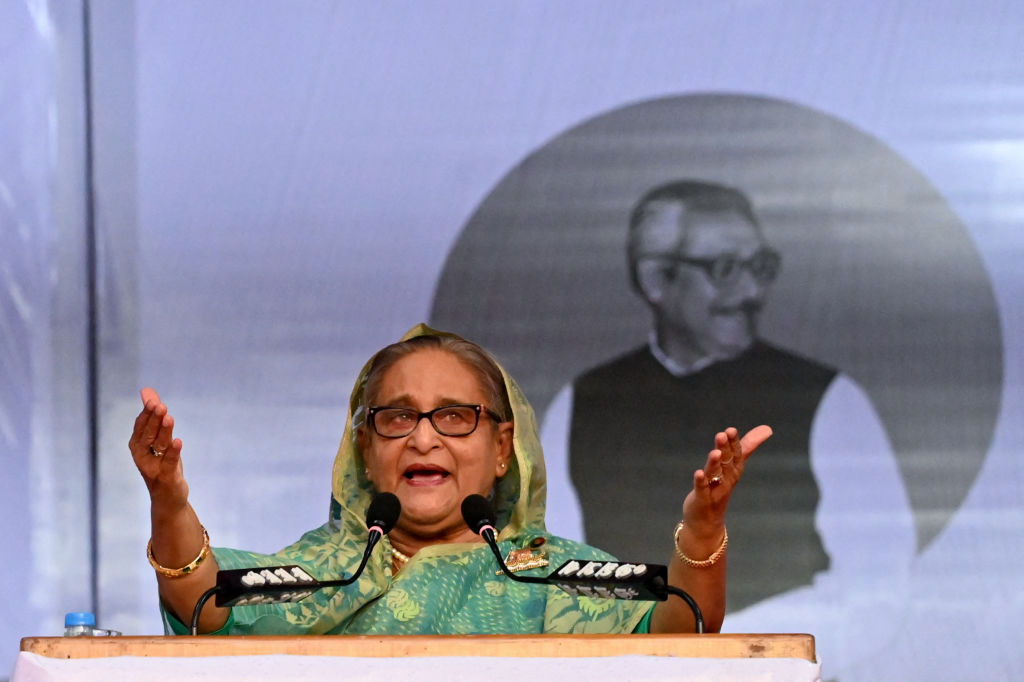
By: Shubham Ghosh
BANGLADESH will hold general elections on Sunday (7) and already, it has generated enough controversy. For several observers, the result of the election could be predictable as some major opposition parties have decided to boycott it. The Bangladesh Nationalist Party (BNP), the main opposition party, has said along with its allies that the government of Sheikh Hasina can be little trusted in holding free and fair elections. Hasina has rejected the opposition’s demand to allow the polls to be held under a neutral government, adding fuel to her critics’ allegations that the election will be farcical.
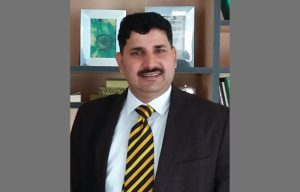
However, while the political opponents of Bangladesh’s ruling Awami League (AL) accuse it of promoting autocracy in the country and western nations such as the US have raised questions over the South Asian nation’s human rights record, it is also true that Bangladesh has made significant economic progress under prime minister Hasina and is considered among the fastest developing economies of the world.
India Weekly caught up with professor Sanjay K Bhardwaj, a professor for South Asian Studies in Jawaharlal Nehru University in Delhi, to understand the implication of the upcoming election in Bangladesh and other related issues concerning the country and its relations with other nations.
Read: Bangladesh deploys army for January 7 election
When asked about Hasina’s likely win in the election and what it means for Bangladesh, prof Bhardwaj said the political dominance of the AL leader is likely to continue while opposition such as BNP and Jamaat-e-Islami, like in the recent past, will have a challenge ahead.
He said the Hasina government will also continue to curb extreme religious activities as it has done since 2008 and that would provide common Bangladeshis a stable environment to make economic progress.
Read: Ahead of Jan polls, Bangladesh opposition BNP urges citizens not to pay taxes, bills
“Bangladesh has done well on the economic front over the years. It is one of the fastest growing economies and is expected to graduate out of the group of least developed countries in 2026 and become an upper middle-income country by 2041. Bangladesh can aspire to see more liberal, progressive and syncretic Islam instead of religious extremism under the political stability given by Hasina which will continue if she becomes the prime minister for the fourth time.” he said, adding, “However, political players of Bangladesh will keep a watch on how the Hasina government deals with religious extremism in days to come.”
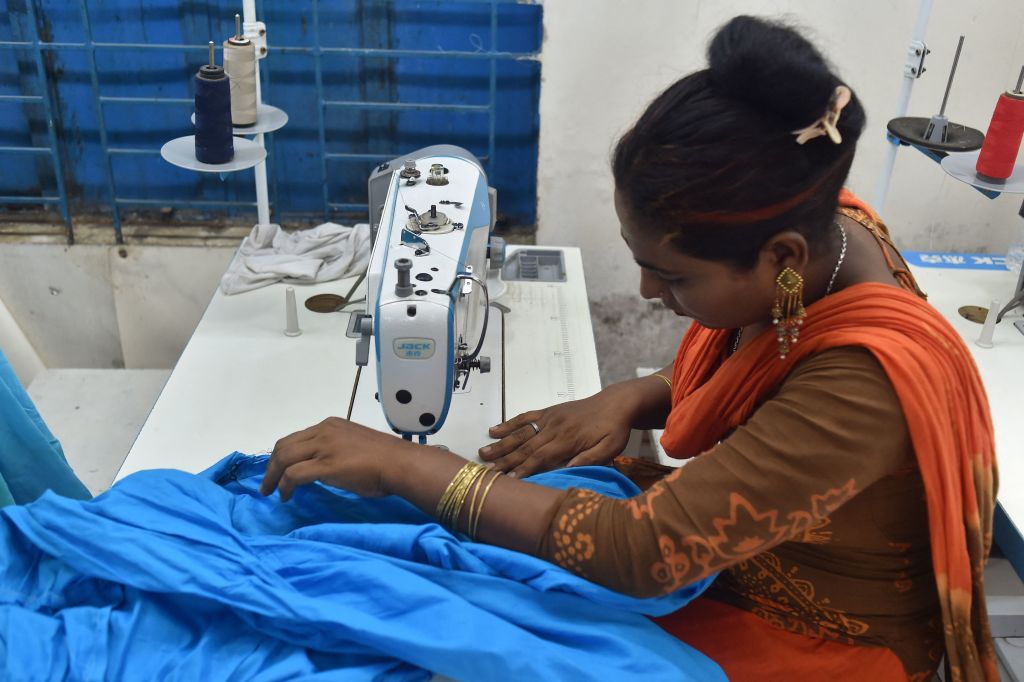
Speaking on Hasina’s work in the realm of foreign affairs, prof Bhardwaj said the veteran leader has done well there too and is expected to maintain the momentum.
“She has engaged with a number of big powers and immediate neighbour India with a balanced approach. Under her leadership, Dhaka has engaged in a comprehensive relationship with New Delhi in areas such as connectivity and energy. The Akhaura-Agartala cross-border rail link; Khulna-Mongla port rail line; and Rampal power plant are some of the top projects that the two neighbours cooperate upon.
“The two nations also have a cross-border oil pipeline and Bangladesh imports a significant quantity of electricity from India, which has also exported locomotives and buses to Bangladesh. Besides India, Bangladesh also has friendly ties with Nepal and Bhutan and the countries are part of the BBIN (Bangladesh, Bhutan, India, Nepal) initiative in South Asia. Bangladesh under Hasina also has close ties with China which invests in two major projects in the South Asian nation such as Padma River Bridge and Karnafuli River Tunnel Project.
“With Russia, Bangladesh has cooperation over the Rooppur nuclear power project. Japan has aided Bangladesh for its maiden metro railway service. The US has expressed concerns over Bangladesh’s human rights issues but I feel this matter will settle down once the election results are out. Bangladesh has expressed its intent towards having an Indo-Pacific strategy and this will play a key role in strengthening its relationship with the US. PM Hasina has also been seen on key global stages such as BRICS and G20 which suggests the importance that the world gives to Bangladesh as an emerging economy,” he told India Weekly.
When speaking about Bangladesh’s foreign relations, how its ties with India are likely to unfold in the near future, given the scenario that both Hasina and her Indian counterpart Narendra Modi win their respective national elections this year? While the two nations largely share a positive relationship, there are also issues such as sharing of the Teesta water or the Rohingya refugees from Myanmar that they need to address. The political leadership of West Bengal, the Indian state that shares the longest border with Bangladesh, objected to sharing the river water with Bangladesh, creating a concern in the bilateral relationship.
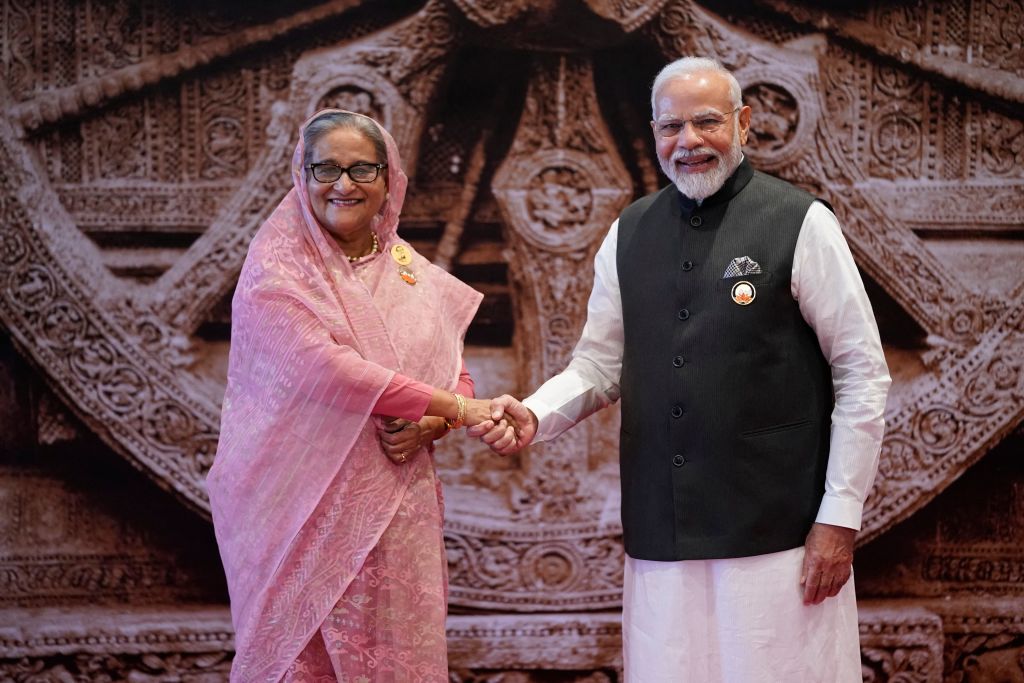
Prof Bhardwaj refused to agree that these issues will put the relationship under stress.
“Hasina is a leader who has maintained good terms with Indian leaders irrespective of their political stance, be it Mamata Banerjee (chief minister of Bengal); Sonia Gandhi (former president of India’s main opposition Indian National Congress); Pranab Mukherjee (late president of India) or Modi. Despite the Teesta water issue, Hasina shares a cordial relationship with Banerjee, On the Indian side, the current government has maintained the policies that the previous regime of Manmohan Singh had followed vis-a-vis Bangladesh, such as line of credits and connectivity. Dhaka is one of the largest recipients of line of credit from New Delhi today. So there is not much of a possibility of the relationship encountering a serious challenge,” prof Bhardwaj said.
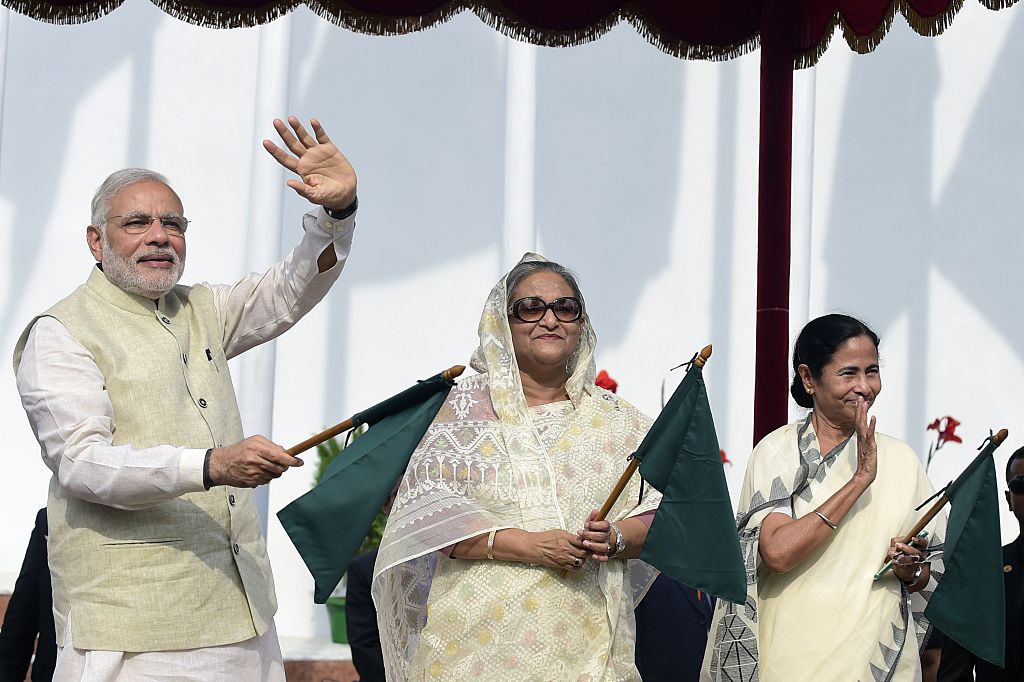
On the Teesta water-sharing issue, the professor said the perception in Bangladesh is more about Banerjee objecting to the process and not Delhi. On the matter related to Rohingya refugees, he said India is not a direct party to that problem. “Yes, it is true that India has strategic interests in Myanmar, particularly with China around but Delhi has extended humanitarian aid to the Rohingyas and while radicalised Rohingyas can be a challenge to South Asian security, the refugees do not pose any direct threat to a flourishing relationship between Bangladesh and India,” he said.
On the question of the BNP boycotting the elections, prof Bhardwaj said the main opposition party did a mistake.
“While former prime minister Khaleda Zia is ailing, his self-exiled son Tarique Rahman is not ready for a transition of power within the party which is only causing a leadership crisis for the BNP and weakening it more. Several BNP sympathisers are upset with the decision to boycott the elections and are joining the festival of democracy,” he said, adding that the scenario could see the radicals filling up the vacuum in Bangladeshi politics but conceded that it would be a time-taking affair.
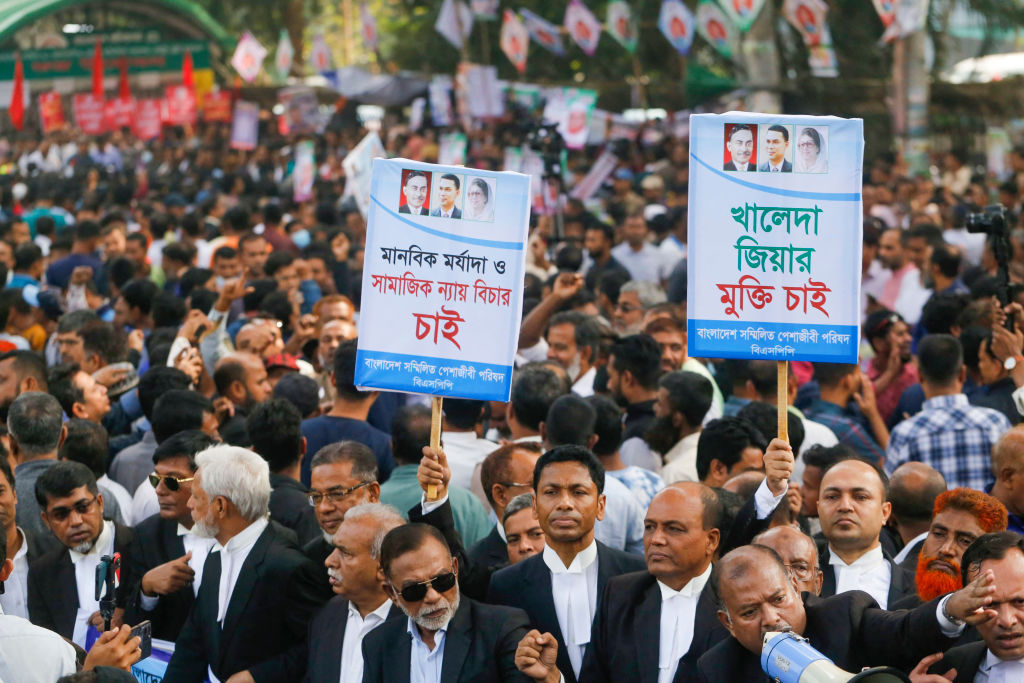
Prof Bhardwaj disagreed that the BNP made a valid demand in having the election under the supervision of a caretaker government. “In a stable system, a caretaker government is not required. Moreover, even caretaker governments can be manipulated if one wants. We have seen the instability Bangladesh experienced between 2006 and 2008 when a military-backed caretaker government was in power. Bangladesh in fact abolished the caretaker government arrangement in 2011,” he said.
While Hasina may secure a record fourth prime ministerial stint in this election, Bangladesh also faces the question of who after her? The country needs to find a successor to the 76-year-old leader and according to prof Bhardwaj, it is a big question. “She has her son, daughter, sister, sister’s children but it is not certain who would succeed her. Hasina tries to promote young leaders but while it is said that the leader herself is honest and has a transparent image, her associates do not. Therefore, the question of Hasina’s succession and how much her successor(s) will be acceptable is something that only time can answer,” he told India Weekly.
On the relations between Hasina’s Bangladesh and the US-led West that has questioned its human rights record, prof Bhardwaj said such records were never good under previous regimes that ruled Bangladesh. “Hasina’s rule has still been better, compared to her opponents. But the West also appreciates the Bangladesh success story. As I said earlier, the West is keeping a watch on how Dhaka develops its Indo-Pacific strategy for a free and open Indo-Pacific region. While Bangladesh is unlikely to confront China from which it receives a lot of help, yet the West looks at it as a key player in the region,” he said.